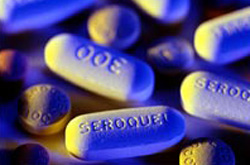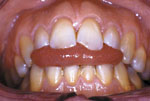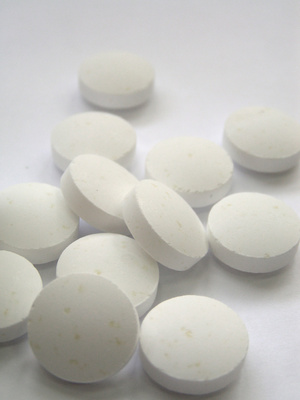What is Orofacial Dyskinesia
Orofacial Dsykinesia was first described in 1957 and the name was coined in 1964. Prior to this because of the prominence of symptoms around the mouth, it was given the name “bucco linguo masticatory syndrome“, meaning “cheek tongue chewing†syndrome. It was most described in patients with schizophrenia.
Orofacial dyskinesia refers to a wide variety of involuntary, repetitive, persistent, stereotyped movements caused by the use of neuroleptic which are drugs that block dopamine receptors. Dopamine receptors are found in our skin and they control movements by receiving electrical impulses.
Orofacial Dyskinesia causes
The main cause of orofacial dyskinesia is linked to the usage of neuroleptic drugs. A neuroleptic is a term that refers to the effects of antipsychotic drugs on a patient, especially on his or her cognition and behavior. Neuroleptic drugs may produce a state of lack of initiative and limited range of emotion. In psychotic patients, neuroleptic drugs causes a reduction in confusion and agitation and tend to normalize psychomotor activity.
Orofacial Dyskinesia Symptoms
Orofacial dyskinesia symptoms are often characterized by well-coordinated continual movements of the mouth, tongue, jaw, and cheeks. Jaw movements may only be on one side or may resemble chewing motions. The tongue movements may be writhing or twisting. The involuntary abnormal repetitive movements of orofacial dyskinesia may also include lip smacking, cheek puffing, tongue thrusting, finger flicking, and trunk twisting.
Symptoms of orofacial dyskinesia can range from mild to severe, based on the frequency and intensity of the movements. Â The movements are often reduced when the patient voluntarily moves affected body parts and are increased when the patient moves unaffected body parts. The abnormal movements usually decrease with emotional arousal, increase with relaxation, and disappear during sleep.
Orofacial Dyskinesis Risk factors
The majority of patients who exhibit orofacial dyskinesia are likely to be older and have been treated over a period of several years with first-generation neuroleptic drugs that include phenothiazine and butyrophenone. Unfortunately, these symptoms are usually irreversible.
Orofacial Dyskinesia Treatments
The easiest prevention and main treatment of orofacial dyskinesia is by using the lowest effective dose of neuroleptic for the shortest period of time is recommended. However orofacial dyskinesia may initially worsen after stopping the prescribed neuroleptics drugs. Therefore, the benefits of neuroleptic drugs versus possible side effects of orofacial dyskinesia must be considered carefully.
The search for a drug that will reverse the effects of orofacial dyskinesia has been unsuccessful.These are however a list of drugs that might be recommended for those suffering from oforacial dyskinesia, the effectiveness of these drugs are not 100 % clinically proven succesfull yet.
- Clozapine is common as a treatment for patients with who require neuroleptic drugs. Clozapine is one of the most effective for treatment refractory schizophrenia. Although clozapine has been associated with orofacial dyskinesia, the incidence of orofacial dyskinesia occurring appears markedly less than that of other commonly used antipsychotic drug. Therefore, if a patients does require the use of a nueroleptic drug and cannot live without the drug than clozapine would be a good option. Please however note that  treatment with clozapine requires regular monitoring of blood levels as it may cause fatal agranulocytosis.
- Other treatments for orofacial dyskinesis include using nueroleptic drug depleting agents. These include vitamin E, levodopa, benzodiazepines, botulinum toxin and reserpine.
- The drug Clonazepam has been reported to successfully alleviate the symptoms of orofacial dyskinesia.
- Mr. Miyaoka and colleagues from Japan have reported that yi-gan san, a traditional Japanese herbal medicine, alleviated psychosis and orofacial dyskinesia symptoms.
- The drug Aripiprazole has been reported to relieve the uncontrolled movements of orofacial dyskinesia in a 65-year-old man with schizophrenia.
 When to contact a Doctor
When to contact a Doctor
The truth is, not many medical physicians can detect orofacial dyskinesia as they might overlap with thousands of other medical problems and not much is known about it yet. The best person to diagnose this disorder is your very own Dental Surgeon as he or she would me more well equip to recognize the symptoms realting to the mouth when a patient turns up for an appointment. The Dental Surgeon would most probably ask about a history of any drug prescription, sometimes neuroleptic drugs can be prescribed for many other medical disorders other than mental ones. Therefore, just be honest so that a clear diagnosis can be arrived at.



is it bad to chew on your tongue? will it hurt my teeth?
it is bad, because in the long run you can develop mouth cancer sue to the constant irritation on the tongue tissue.
It will not hurt your teeth , but the tissue in the mouth will eventually ulcerate and turn cancerous.
sorry *due